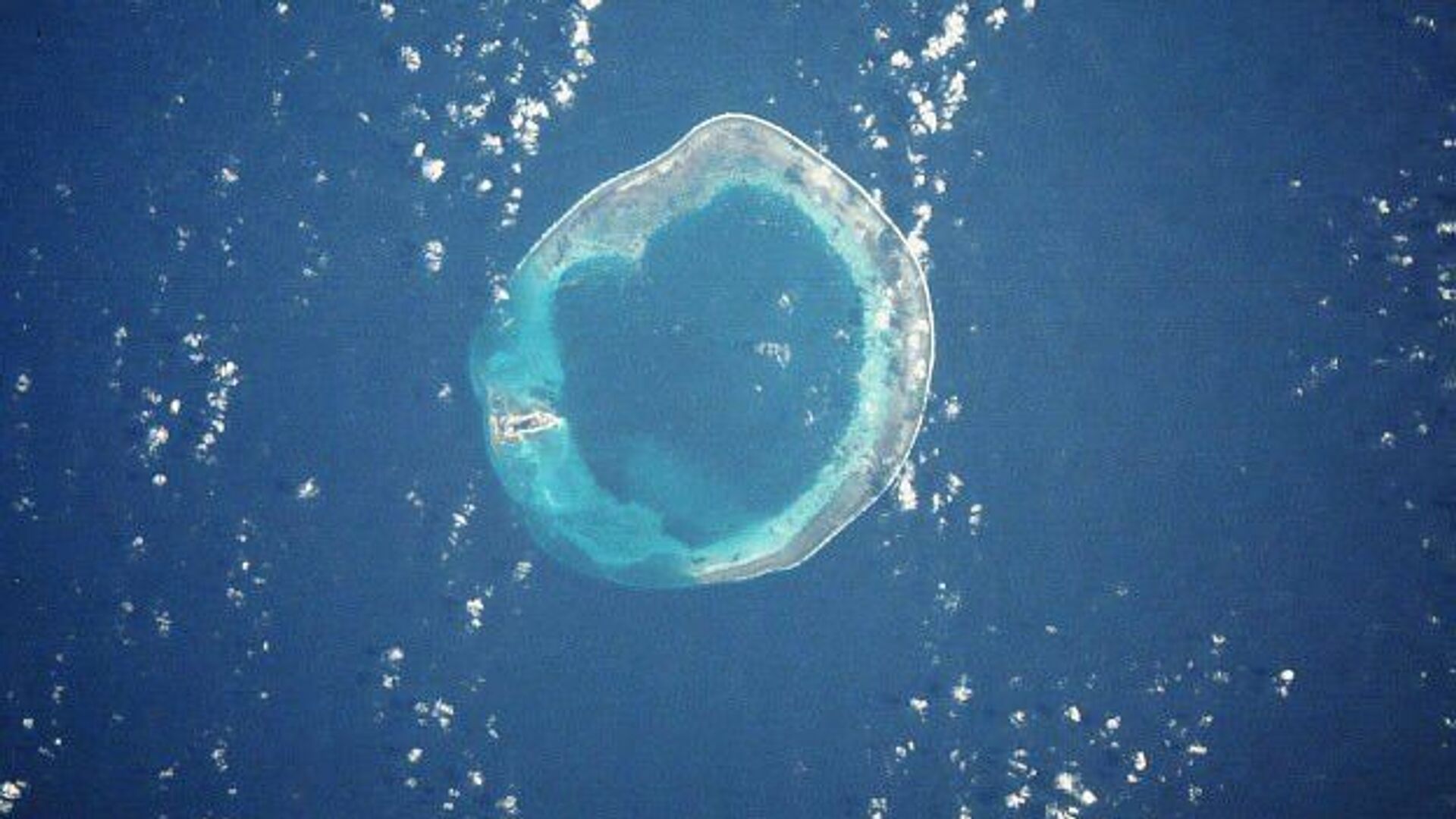https://sputnikglobe.com/20211107/us-media-reveals-how-china-could-test-biden-on-taiwan-without-starting-full-scale-war-1090549515.html
US Media Reveals How China Could ‘Test’ Biden on Taiwan Without Starting Full-Scale War
US Media Reveals How China Could ‘Test’ Biden on Taiwan Without Starting Full-Scale War
Sputnik International
President Joe Biden has said repeatedly that he would rush to Taiwan’s aid if Chinese “bad guys” attacked the island, only to be corrected by other US... 07.11.2021, Sputnik International
2021-11-07T18:37+0000
2021-11-07T18:37+0000
2023-06-19T12:43+0000
america
china
island
taiwan
https://cdn1.img.sputnikglobe.com/img/07e4/08/0a/1080125860_0:160:624:511_1920x0_80_0_0_7f0a6c2d1ac83ac5fb4d05afffb23ec9.jpg
Beijing has several potential ways to “test” the US commitment to Taiwan without risking the danger of all-out war between the economic superpowers, Cato Institute senior fellow Ted Galen Carpenter believes.In a piece in the National Interest, Carpenter suggests that instead of threatening a full-scale invasion of the island, the People’s Republic could carry out “a more limited action” – by seizing Kinmen and Matsu, two small island groups governed by Taipei but which like the rest of Taiwan are claimed by Beijing.China could also launch a “limited action” against “other, more distant islands that Taipei claims,” the observer says, with any such operations said to serve as a “bold, yet relatively low-risk way for Beijing to test the extent and reliability of Washington’s resolve to defend Taiwan.”The analyst believes that “recently, even some portions of America’s sleepy foreign policy blob are beginning to notice the possibility of a limited strike,” with the neoconservative Center for a New American Security recently publishing a report entitled “the Poison Frog Strategy” and gaming out a scenario under which China invades Pratas/Dongsha Island, captured 500 Taiwanese troops and setting up a military installation. The think tank’s recommendations – beefing up US defences in the region and calling on allies like Japan to chip in on defence, are “little more than wishful thinking,” according to Carpenter.China, Carpenter fears, may be driven to “do something” to prevent Taiwan from drifting away “from any prospect of reunification,” with a seizure of Pratas/Dongsha or some other remote Taiwanese-claimed or administered islands serving as “a shot across the bow of both Taiwan and the United States to emphasize that the PRC is deadly serious.”The analyst believes Chinese President Xi Jinping and other Chinese officials have “legitimate reasons to doubt whether the United States would be willing to risk a horribly destructive war with China over small islands that are merely claimed by Taipei,” with any “bold move” to seize an island or islands putting “the onus of any subsequent, dangerous escalation totally on the United States while sending an emphatic message of China’s determination and fraying patience.”Policy DebateThe 1979 Taiwan Relations Act – which sets out the US’s policy of “strategic ambiguity” vis-a-vis Taiwan, does not explicitly oblige Washington to come to Taipei’s defence in case of aggression, stating only that “any effort to determine the future of Taiwan by other than peaceful means, including by boycotts and embargoes,” would be seen as “a threat to the peace and security of the Western Pacific area” that would “gravely concern” Washington.The TRA enables US officials to provide the island with “arms of a defensive character,” and “maintain the capacity of the United States to resist any resort to force or other forms of coercion that would jeopardize the security, or the social or economic system, of the people of Taiwan,” but nothing more.Carpenter suggests that the Biden administration’s recent series of contradictory statements on Taiwan – in which the president has on two separate occasions made statements about a commitment to come to the island’s defence, only to be contradicted by his officials, may be an indication of an internal policy debate in the White House.Chinese officials have said repeatedly that they seek peaceful reunification of Taiwan with the mainland along the ‘One Country, Two Systems’ model applied to Hong Kong in 1997. Last month, President Xi reiterated that reunification would “definitely” take place, and stressed that “to achieve the reunification of the motherland by peaceful means” would be “most in line with the overall interests of the Chinese nation, including our compatriots in Taiwan.”Despite the pledge of reunification being peaceful, Chinese officials and media have also expressed consternation, frustration and anger over the current Taiwanese government’s steady push to get Washington to recognize the island’s sovereignty –whether by renaming the de facto embassy, or inviting Taiwanese leader Tsai Ing-wen to an upcoming ‘democracy summit.’Last month, Tsai acknowledged the presence of a small number of US troops on Taiwan amid media reports which revealed that US forces had been engaged in the training of Taiwanese forces on the island for over a year. China’s outward-facing English-language Global Times newspaper had previously warned that if US troops were to be discovered on Taiwan, China would have the right to “crush them by force” by putting the Anti-Secession Law into use, which would also allow them to reunify the island with the PRC by force.The recent cross-strait tensions are not a constant in PRC-Taipei relations. In the 1980s and 1990s, Taiwan’s longtime ruling party – the nationalist Kuomintang – the same political force which fought and lost in the civil war against the communists in the Chinese civil war of the late 1940s, worked to improve relations with Beijing, establishing both economic ties and informal diplomatic links. The party has generally accepted the idea of peaceful reunification. However, Tsai’s Democratic Progressives, who came to power in 2016, have firmly rejected the idea of reunification in any form.Last month, in his own piece in the National Interest, Harvard Kennedy School professor Graham Allison warned that the US must come to terms with the reality that it no longer enjoys “military primacy” in the Western Pacific region, and accept the “ugly” reality that it may lose a military conflict with China over Taiwan thanks to the PRC’s radical advances in anti-access/area-denial (A2/AD) capabilities, combined with the US military’s loss of “dominant superiority in every operating domain.”
https://sputnikglobe.com/20211105/us-senate-bill-would-give-taiwan-2-billion-in-annual-military-aid-including-hypersonics-1090486579.html
https://sputnikglobe.com/20211104/taiwans-intel-chief-says-china-weighed-seizing-pratas-island-but-will-not-happen-before-2024-1090482349.html
https://sputnikglobe.com/20211030/us-media-acknowledges-ugly-reality-that-america-could-lose-war-with-china-over-taiwan-1090349874.html
https://sputnikglobe.com/20211105/china-to-prosecute-people-who-are-pro-taiwan-independence-1090492226.html
china
taiwan
Sputnik International
feedback@sputniknews.com
+74956456601
MIA „Rosiya Segodnya“
2021
News
en_EN
Sputnik International
feedback@sputniknews.com
+74956456601
MIA „Rosiya Segodnya“
Sputnik International
feedback@sputniknews.com
+74956456601
MIA „Rosiya Segodnya“
america, china, island, taiwan
america, china, island, taiwan
US Media Reveals How China Could ‘Test’ Biden on Taiwan Without Starting Full-Scale War
18:37 GMT 07.11.2021 (Updated: 12:43 GMT 19.06.2023) President Joe Biden has said repeatedly that he would rush to Taiwan’s aid if Chinese “bad guys” attacked the island, only to be corrected by other US officials saying that Washington’s position of “strategic ambiguity” toward Taipei remains unchanged. Beijing considers Taiwan an integral part of China destined for eventual peaceful reunification.
Beijing has several potential ways to “test” the US commitment to Taiwan without risking the danger of all-out war between the economic superpowers, Cato Institute senior fellow Ted Galen Carpenter believes.
In a
piece in the National Interest, Carpenter suggests that instead of threatening a full-scale invasion of the island, the People’s Republic could carry out “a more limited action” – by seizing Kinmen and Matsu, two small island groups governed by Taipei but which like the rest of Taiwan are claimed by Beijing.
China could also launch a “limited action” against “other, more distant islands that Taipei claims,” the observer says, with any such operations said to serve as a “bold, yet relatively low-risk way for Beijing to test the extent and reliability of Washington’s resolve to defend Taiwan.”
The tiny, South China Sea island of Pratas/Dongsha Island, administered by Taipei but claimed by Beijing, is one possibility, according to Carpenter. The 2.8 km long, 174 hectare island is situated less than 250 km from the coast of mainland China, but over 430 km from Taiwan, and is uninhabited.
The analyst believes that “recently, even some portions of America’s sleepy foreign policy blob are beginning to notice the possibility of a limited strike,” with the neoconservative Center for a New American Security recently publishing a
report entitled “the Poison Frog Strategy” and gaming out a scenario under which China invades Pratas/Dongsha Island, captured 500 Taiwanese troops and setting up a military installation. The think tank’s recommendations – beefing up US defences in the region and calling on allies like Japan to chip in on defence, are “little more than wishful thinking,” according to Carpenter.
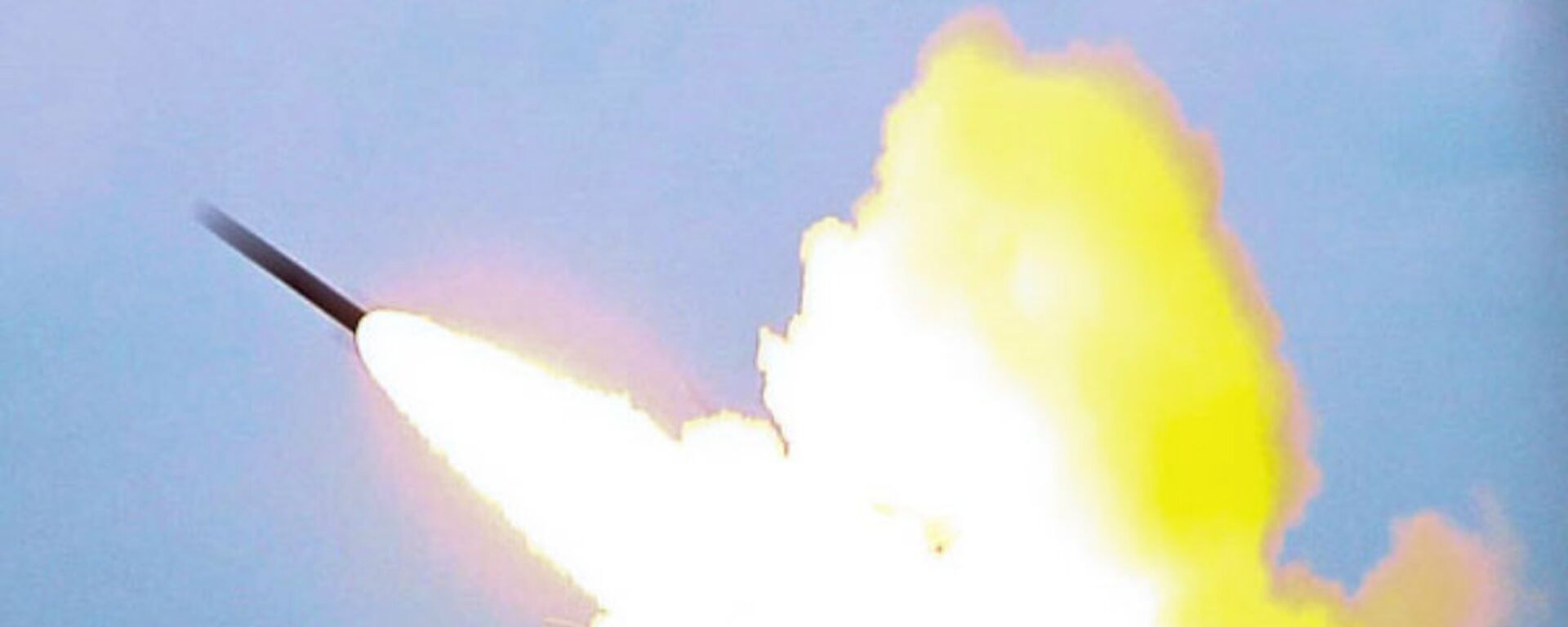
5 November 2021, 01:09 GMT
China, Carpenter fears, may be driven to “do something” to prevent Taiwan from drifting away “from any prospect of reunification,” with a seizure of Pratas/Dongsha or some other remote Taiwanese-claimed or administered islands serving as “a shot across the bow of both Taiwan and the United States to emphasize that the PRC is deadly serious.”
The analyst believes Chinese President Xi Jinping and other Chinese officials have “legitimate reasons to doubt whether the United States would be willing to risk a horribly destructive war with China over small islands that are merely claimed by Taipei,” with any “bold move” to seize an island or islands putting “the onus of any subsequent, dangerous escalation totally on the United States while sending an emphatic message of China’s determination and fraying patience.”
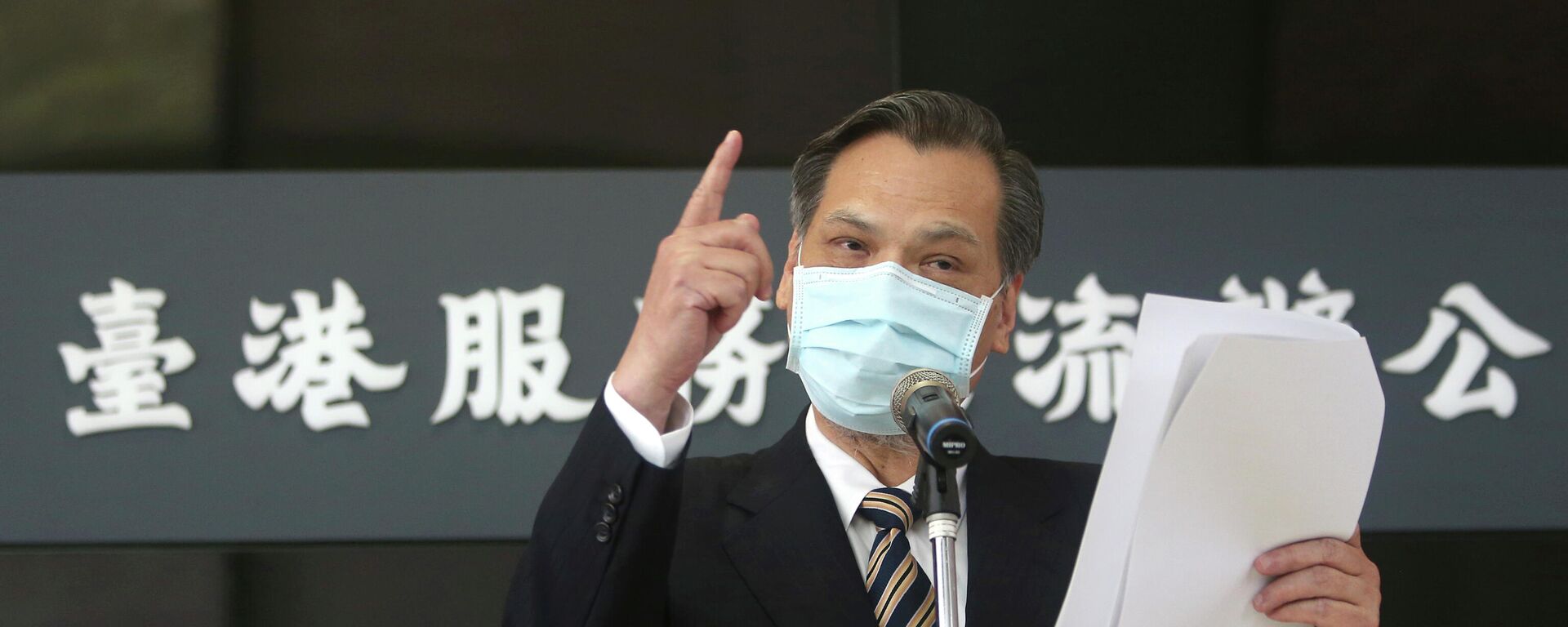
4 November 2021, 20:16 GMT
The 1979 Taiwan Relations Act – which sets out the US’s policy of “strategic ambiguity” vis-a-vis Taiwan, does not explicitly oblige Washington to come to Taipei’s defence in case of aggression, stating only that “any effort to determine the future of Taiwan by other than peaceful means, including by boycotts and embargoes,” would be seen as “a threat to the peace and security of the Western Pacific area” that would “gravely concern” Washington.
The TRA enables US officials to provide the island with “arms of a defensive character,” and “maintain the capacity of the United States to resist any resort to force or other forms of coercion that would jeopardize the security, or the social or economic system, of the people of Taiwan,” but nothing more.
Carpenter suggests that the Biden administration’s recent series of contradictory statements on Taiwan – in which the president has on two separate occasions made statements about a commitment to come to the island’s defence, only to be contradicted by his officials, may be an indication of an internal policy debate in the White House.
Chinese officials have said repeatedly that they seek peaceful reunification of Taiwan with the mainland along the ‘One Country, Two Systems’ model applied to Hong Kong in 1997. Last month, President Xi reiterated that reunification would “definitely” take place, and stressed that “to achieve the reunification of the motherland by peaceful means” would be “most in line with the overall interests of the Chinese nation, including our compatriots in Taiwan.”
Despite the pledge of reunification being peaceful, Chinese officials and media have also expressed consternation, frustration and anger over the current Taiwanese government’s steady push to get Washington to recognize the island’s sovereignty –whether by renaming the de facto embassy, or inviting Taiwanese leader Tsai Ing-wen to an upcoming ‘democracy summit.’
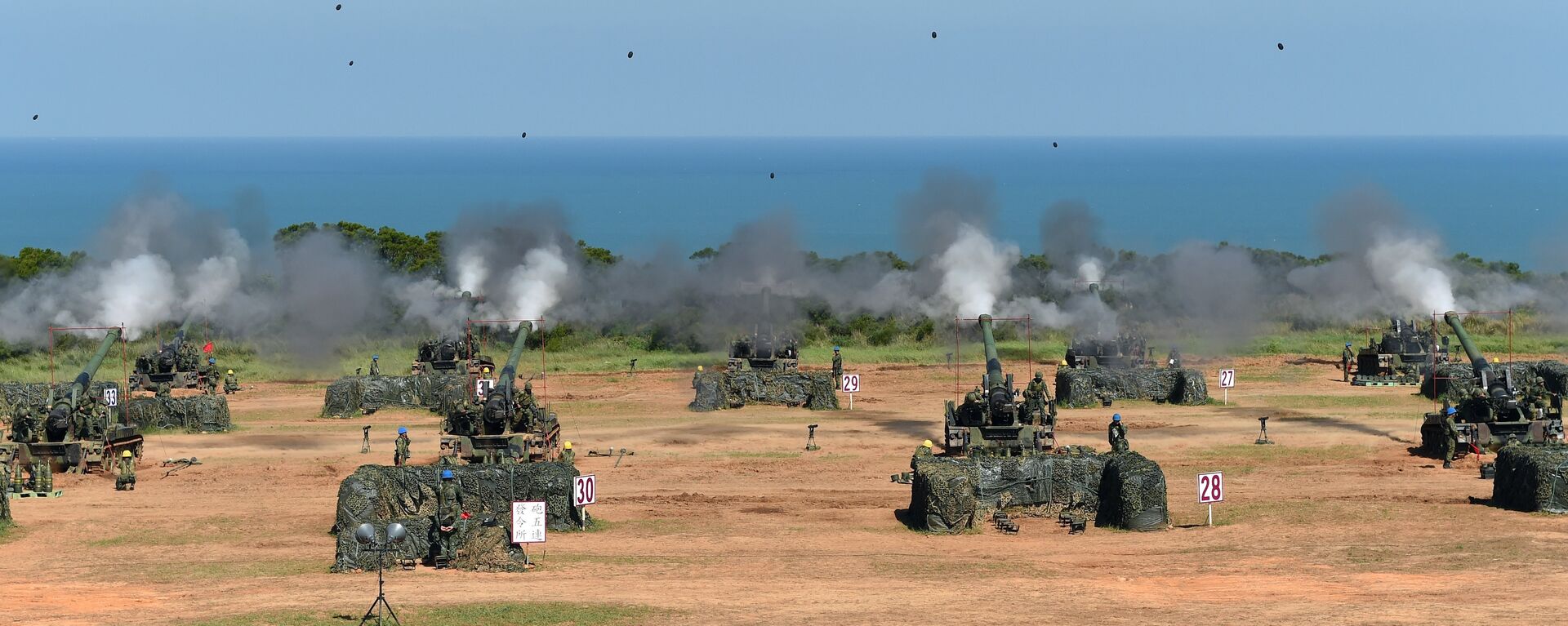
30 October 2021, 18:14 GMT
Last month, Tsai acknowledged the presence of a small number of US troops on Taiwan amid media reports which revealed that US forces had been engaged in the training of Taiwanese forces on the island for over a year. China’s outward-facing English-language Global Times newspaper had previously warned that if US troops were to be discovered on Taiwan, China would have the right to
“crush them by force” by putting the Anti-Secession Law into use, which would also allow them to reunify the island with the PRC by force.
The recent cross-strait tensions are not a constant in PRC-Taipei relations. In the 1980s and 1990s, Taiwan’s longtime ruling party – the nationalist Kuomintang – the same political force which fought and lost in the civil war against the communists in the Chinese civil war of the late 1940s, worked to improve relations with Beijing, establishing both economic ties and informal diplomatic links. The party has generally accepted the idea of peaceful reunification. However, Tsai’s Democratic Progressives, who came to power in 2016, have firmly rejected the idea of reunification in any form.
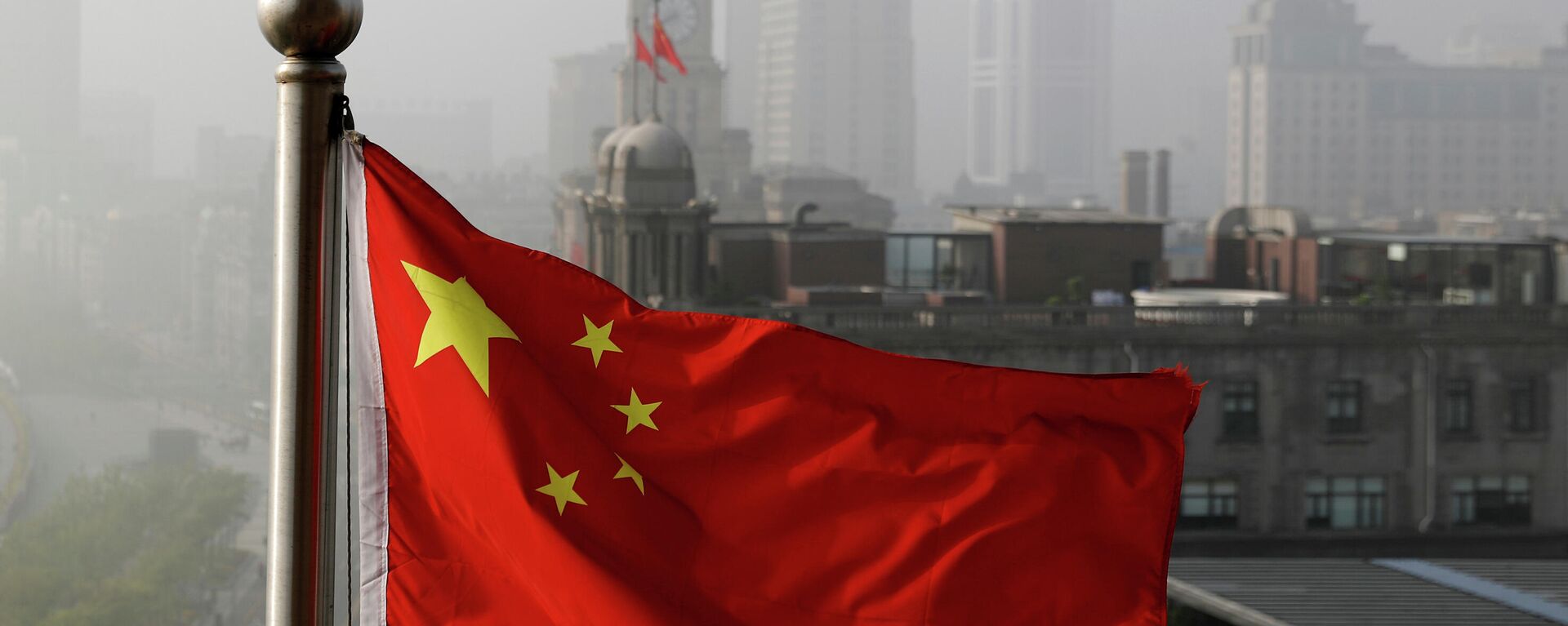
5 November 2021, 07:34 GMT
Last month, in his own piece in the National Interest, Harvard Kennedy School professor Graham Allison
warned that the US must come to terms with the reality that it no longer enjoys “military primacy” in the Western Pacific region, and accept the “ugly” reality that it may lose a military conflict with China over Taiwan thanks to the PRC’s radical advances in anti-access/area-denial (A2/AD) capabilities, combined with the US military’s loss of “dominant superiority in every operating domain.”
